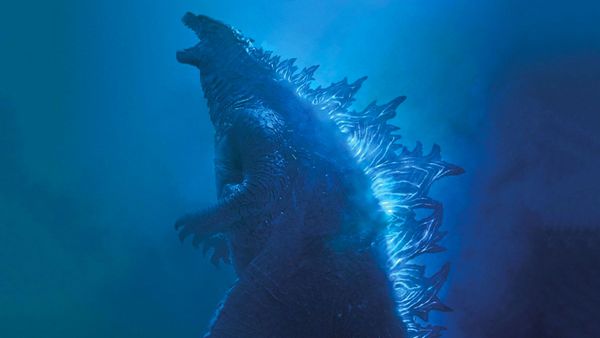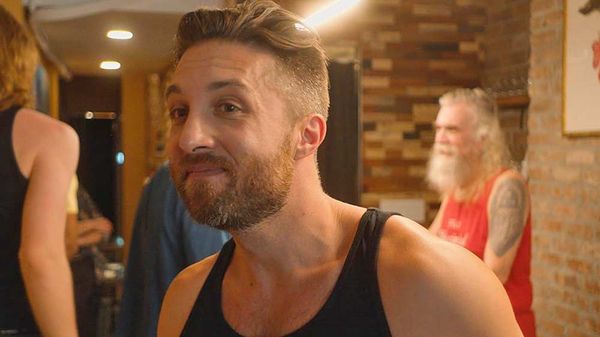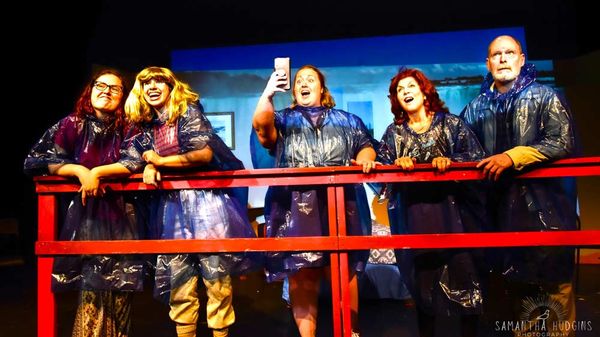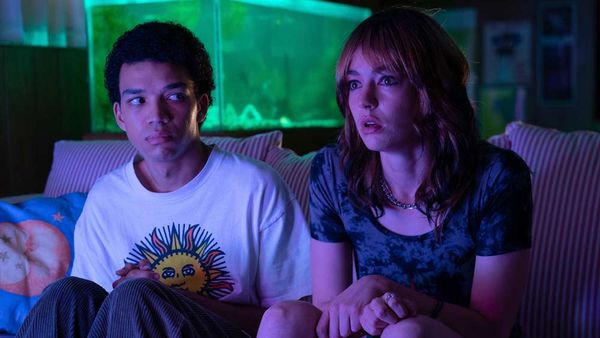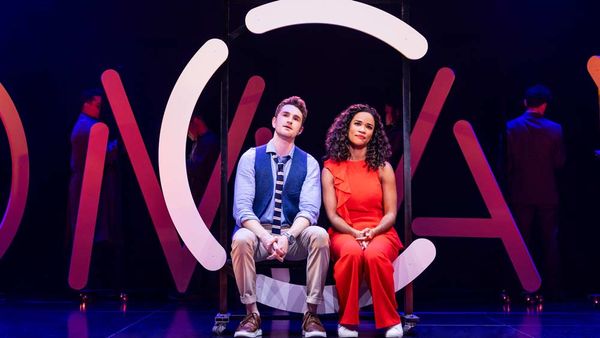May 16, 2014
Godzilla
Kevin Taft READ TIME: 5 MIN.
It's been 16 years since Roland Emmerich reimagined the King of the Monsters and, as a result, disappointed generations of fans all over the world. There is a lot of expectation riding on Gareth Edwards reboot of "Godzilla," especially since he certainly has a way with large, destructive beasts, as evidenced by his first feature, "Monsters."
The good news is that as a director, he does not disappoint. He makes terrific choices that harken back to the heyday of Spielberg and, in fact, this feels (at first) like it could be this generation's "Jurassic Park." Alas, despite all the good, there is the bad -- namely, a script by Max Bornstein (who penned the much-delayed "Seventh Son") that feels like a first draft: Too many ideas and not enough character development to make us care about a single person on screen.
In this update, we initially follow Joe Brody (Bryan Cranston), who works at a nuclear power plant in Japan with his wife Sandra (Juliette Binoche). But when an accident takes her life, he dives into a deep depression as he attempts to prove that the accident wasn't what everyone thought it was. We jump fifteen years to the present day where Joe's son Ford (Aaron Taylor-Johnson) has just returned home to San Francisco from a tour in Iraq. His loving wife Elle (Elizabeth Olsen) and young son Sam (Carson Bolde) round out their little family unit, which is as perfect as you'd hope a family could be. (More on this later.)
But when Joe gets in trouble in Japan, Ford goes to bail him out. Irritated with his father's obsession, he finds himself a part of his dad's conspiracy theories only to discover they might not be theories after all. And when an ominous (and humungous) find on the site of the nuclear facility is found -- and Ford finds himself on his own -- he must take over his father's fight to reveal the truth.
And run from monsters.
That's all I really want to say about the plot of the film, because Edwards throws in a number of twists on our expectations that keep this fresh and fun. Even the marketing team wisely chose not to reveal some things so that audiences will be surprised. I don't want to be the one to spoil anything. What I can spoil, however, are the myriad of script issues the film has which takes it from something truly awesome, to something sporadically exciting.
Long story short, the film feels like the vomit-draft that most screenwriters do when they first write a script. They put every idea onto paper and then read through to see which ideas stick and which don't. Here, Bornstein has a main character by way of Bryan Cranston who is mourning his dead wife and wants to prove there was a cover-up of sorts. There's lots of discussion in here about a secret bomb project back in the '50s, which alludes to the earlier Toho "Godzilla" films and, in a way, includes it in its "history."
The problem is that about 45 minutes into the film Cranston is no longer our main focus, and instead we are handed over to his son, who now becomes the audience surrogate. And while Aaron Taylor-Johnson is a handsome hunk to follow, he is given nothing to do but "suit up" and react to everything. His relationship with his family is absolutely perfect, so there is nothing for them to learn as a unit, and ultimately this makes us not really care a helluva lot about them. Poor Elizabeth Olsen is trapped in San Francisco for the whole film while most of it takes place in Japan, Hawaii, and Vegas. It only ends in San Francisco, which at that point just seems super-convenient.
The choice to give this loving couple a child is also a head-scratcher. You have the perfect opportunity for a father to protect his family yet... he leaves them early on and only reunites with them briefly in the last act. He is forced to protect a young Japanese boy who gets separated from his family right before they get stuck on a train, which will soon be put in jeopardy. That same kid disappears shortly after this scene, so why not find a way to get his own kid into this scene so that there's a point in his existing? Olsen's character even shuffles the kid off with a random friend, making little Sam Brody the most useless character of the year.
Sally Hawkins ("Blue Jasmine") and Ken Watanabe ("The Last Samurai") are wasted as researchers who basically stand around looking worried a lot because they know what's coming. Watanabe's only facial expression is one that has his mouth agape, and Hawkins just constantly looks like she's on the verge of tears. There is a real point where a lot of what is going on seems so serious and over-the-top that you want to giggle. The problem is that Edwards and the cast are taking their film so seriously it just comes off as laughable. (Witness the scene of destruction where a lone dog tied to a tree has to outrun a tsunami.)
Furthermore, you have a moment where a character states that the monster is heading toward Vegas. Immediately you get giddy with the prospect of watching Vegas get destroyed. Unfortunately, what happens in Vegas really does stay in Vegas, because aside from a shot of some people in a casino when the lights go out, we really only see the aftermath. It's a wasted plot point.
While people might get on my case for being "too picky" about a monster movie, the lack of these problems is what made "Jurassic Park" so great. You had characters that had issues they needed to get over, people that were interesting and relatable. Every scene served a purpose. "Godzilla" seems scattered to the point where even the numerous destruction scenes give you battle-fatigue.
But despite all of this, there is a thrill to this "Godzilla" that is undeniable. There are awesome action sequences, jaw-dropping special effects, and the return of the way Godzilla was meant to look. When he finally lets the fire roar from his mouth, it is such a child-like thrill you want to stand up and cheer. Edwards also does a masterful job at keeping Godzilla hidden for the first half of the film. Oh, there's some thrills to be had during this time, but the big guy keeps his head down. Even when he is finally front and center, Edward's cinematographer, Seamus McGarvey, doesn't let us see him in full all the time. We see him from character's perspectives, which is more unsettling and way more suspenseful.
Because of this, I recommend the return of "Godzilla" for the spectacle of it all and for Edwards decision to not be a wall-to-wall action film like "Man of Steel" or "Transformers." He allows the film to breathe, and he allows the main showpiece to satiate us without filling us up to the point of nausea. He is a director to watch for sure (hello future "Star Wars" films), and he makes even a bad script palatable. King of the Monsters, indeed.
Kevin Taft is a screenwriter/critic living in Los Angeles with an unnatural attachment to 'Star Wars' and the desire to be adopted by Steven Spielberg.



